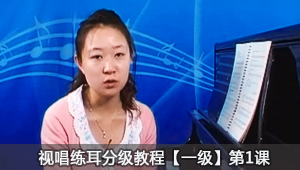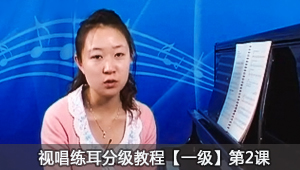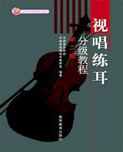武汉音乐学院2012年硕士研究生招生考试大纲(二十三)
导语: ◆ 音 乐 考 研简章|报名|成绩|录取 ◆ 音 乐 高 考简章|报名|成绩|录取 ◆ 音乐特长生简章|报名|成绩
英语听力(公共科目)
一、测试目的
外语听力测试主要测试考生理解外语口语的能力。要求考生理解主 旨要义;获取事实性的具体信息;理解明确或隐含表达的概念性含义;进行有关的判断、推理和引申;理 解说话者的意图、观点或态度。
二、 试卷内容与结构(见表1)
听力部分由A、B、C三节组成,共20小题,每小题 1分,共20分。
A节(5题):测试考生理解特定和具体信息的能力。要求考生根据所听到的一段独白或 5个对话的内容,从每题所给的4个选择项中选出最佳选项, 或判断正误。录音材料播放两遍。
B节(5题):测试考生理解特定、具体或总体信息的能力。要求考生根据所听到的一段 较长的独白或2个较长对话,从每题所给的4个选择项中选出最佳选项或判断正误。录音材料播放两遍。
C节(10题):测试考生获取特定、具体信息,理解主旨要义,推测词义、判断说话者意图、观点或 态度的能力。要求考生根据所听到的两段独白,从每题所给的4个选择项中选出最佳选项或判断正误, 或 进行词句填空。每段录音只播放一遍。
考试进行时,考生将答案写或划在试卷上;听力部分结束前, 考生有5分钟的时间将试卷上的答案誊写或转涂到客观题答题卡上。
研究生入学考试英语听力测试详解
| 节 | 为考生提供的信息 | 测试要点 | 题型 | 题目数量 | 计分 |
| A | 5个短对话或1段独白 (放两遍录音) |
特定和具体信息 | 多项选择题(四选一)或判断正误 | 5 | 5 |
| B | 2个长对话或1段较长独白(放两遍录音) | 特定、具体 或总体信息 |
多项选择题(四选一) 或判断正误 | 5 | 5 |
| C | 2段独白(放一遍录音) | 理解大意和细节推断词义判断态度/意图 | 多项选择题(四选一) 或判断正误 或词句填空 |
10 | 10 |
英语听力复试考试样题
English Test of Listening Comprehension for MA/MS Candidates (NETEM)
Directions:
This section is designed to test your ability to understand spoken English. You will hear
a selection of recorded materials and you must answer the questions that accompany them.
There are three parts in this section, Part A, Part B and Part C.
Section A
Directions: In this section, you will hear 5 short conversations. At the end of each conversation, a question will be asked about what was said. The conversation and the question will be spoken twice. After each question there will be a pause. During the pause, you must read the four suggested answers marked A), B), C) and D), and decide which is the best answer. Then mark the corresponding letter on the answer sheet with a single line through the center. (5 points)
1. A) The man wants to go to Los Angeles.
B) The man wants to go to San Francisco.
C) There are no flights to Los Angeles for the rest of the day.
D) There are two direct flights to Los Angeles within the next two hours.
2. A) He enjoys writing home every week.
B) He never fails to write a weekly letter home.
C) He doesn’t write home once a week now.
D) He has been asked to write home every week.
3. A) Because she hasn’t got an appointment.
B) Because she doesn’t want to.
C) Because she has to work.
D) Because she wants to eat in a new restaurant.
4. A) The teacher has postponed the meeting.
B) There won’t be a test this afternoon.
C) The students will be attending the meeting.
D) The students will take an English test this afternoon.
5. A) On the whole, she liked the film.
B) She didn’t see the film.
C) The film was very exciting.
D) The film wasn’t as good as she’d expected.
相关内容
- 河南师范大学2015年推荐免试研究生录取名单2014-10-26
- 中央音乐学院报考“少数民族高层次骨干人才”计划注意事项2014-10-26
- 中央音乐学院2015级硕士研究生复试报考须知2014-10-26
- 中央音乐学院2015级硕士生主科考试成绩合格入复试名单2014-10-26
- 武汉大学艺术学系2015年第三批推免生复试成绩公示2014-10-26
- 中国音乐学院2015年招收硕士生主课初试通过名单(骨干计划)2014-10-26
热点文章
乐器
其布厄
其布厄,是傈僳族弹拨弦鸣乐器。傈僳语“其”是弦子,“布厄”为傈果,意即圆筒形的弦子。又...
 名称:中音在线
名称:中音在线 




